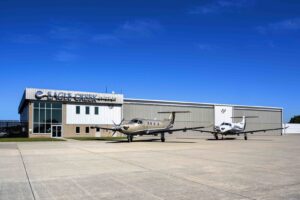Frequent business aviation users may be familiar with the terms Part 91 and Part 135 operations, but what exactly is the difference? And why is it so important to understand?
When purchasing a private jet for business or personal use, there are many things to consider, including:
- Aircraft maintenance
- Pilot and crew hiring, training, salaries and benefits
- Insurance
- Hangar and fuel costs
- And more
For some, managing your asset on your own – or hiring a pilot to manage your asset – might appear to be the “easiest” option. However, there are many complexities in managing and operating an aircraft; and it’s best to make sure whoever is managing your aircraft fully understands the responsibilities and regulations.
As a Part 91 and Part 135 operator, Jet Access understands the importance of the difference between the two, and how it impacts your bottom line.
Part 91
- Non-commercial operations: Personal use (you own the asset) or corporate use (business related functions)
- Ability to operate your aircraft with less oversight, although there are many pitfalls that an inexperienced/unfamiliar owner/operator may run into
- Basic requirements for safety programs and flight crew
- No requirements for crew duty and rest
Part 135
- Commercial, transactional aircraft operations
- FAA guidelines provide legal and operational structure
- Pilot qualifications – greater frequency of SIM and recurrent training, along with established duty and rest requirements
- Required to have a Director of Operations, Chief Pilot and Director of Maintenance
- Operational Control Center handles fuel, hangar, and international trip planning and is available 24/7/365
Jet Access is the first aviation company to combine each sector of the industry under one brand on a national scale to deliver the best value proposition for those who fly privately. We understand the complexities of owning and operating aircraft, so we provide complete transparency and cost savings for operating your aircraft, while maintaining the highest safety standards in the industry.
In the current economic environment, it’s important to evaluate the management of your asset and ensure your aircraft is managed properly. Is your aircraft manager skilled in your airframe? Is your aircraft in a position to generate revenue if necessary? Are you overpaying for fuel and hangar space? Our team would be happy to provide you with a free evaluation and discuss options for your aircraft.





